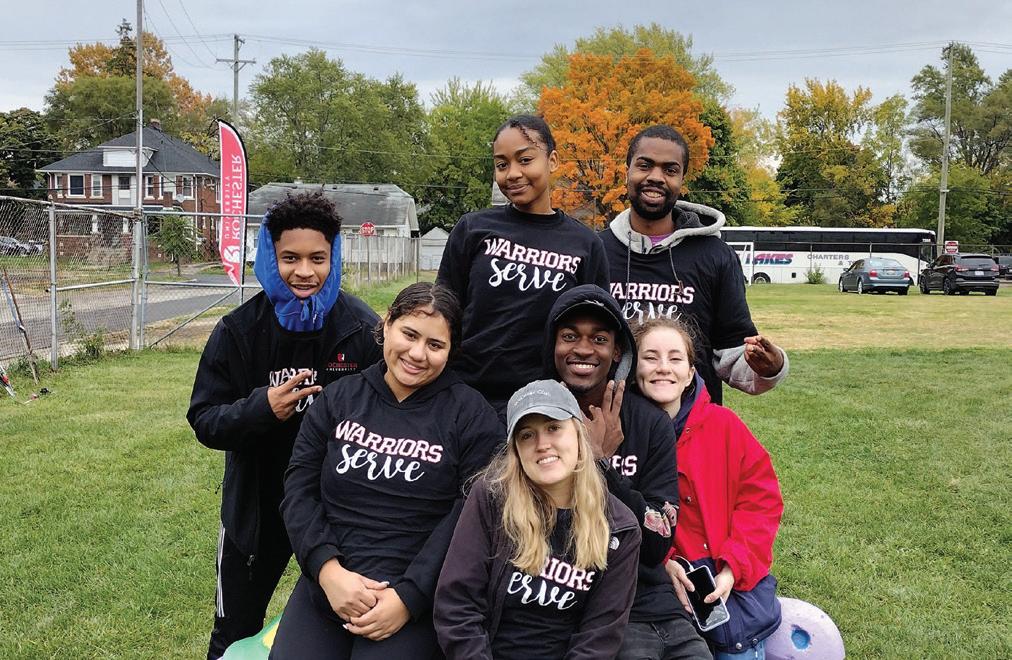










After two years full of restrictions, precautions and uncertainty because of the COVID-19 pandemic, life seems to finally be returning back to a sense of normality.
We are now able to use our experience from the past two years and create a comeback that will allow us to THRIVE now and in years to come.
When I came to RU in fall 2020, in the middle of the pandemic, I felt like I was missing out on what the ideal “college experience” was supposed to be, due to the numerous restrictions on campus to keep everyone safe.
The next year I raised a dog on campus, training him to one day be a Leader Dog for a visually impaired person, which limited how much free time I had to spend with others on campus.
As the pandemic went on, I found myself to be at my lowest point in life and I noticed my mental health was declining.
Now in my third year of college, I finally feel like I’m getting the true “college experience” that I had dreamed about for the last two years. I joined Sigma Phi Delta Nu, RU’s all-gender social club, became more involved as the magazine content director for Shield, obtained a job I really enjoy, and I’ve been able to spend more time on campus with friends.
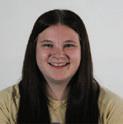
All of this has helped me thrive more as a student, an employee, a friend, a daughter and a person.
In this magazine, the Shield Media team hopes you are able to see how the RU community continues to thrive post-COVID and hopes to inspire you to take the next step towards thriving in your own life.
» Shield Media is the independent student media of Rochester University. As such, we are committed to engaging in thoughtful dialogue over issues relevant to our culture. Shield Media relates to our audience by providing them with bold stories that are intended to entertain, inform and stimulate.
» Shield Media participates in Rochester University’s faith-based mission, and believes that, as ethically minded journalists, we have a responsibility to engage each story with openmindedness, compassion and nuance.
» Along with Rochester University’s Department of Mass Communication, Shield Media prepares young professionals for work in media-related fields by teaching and honing their skills in writing, reporting, graphic design, broadcasting, videography and photography.
» Shield Media is a student and not a college publication.
Views expressed are diverse, and of course, do not correspond to all views of RU’s board, administration, faculty, staff, students or other constituency.
ON THE COVER
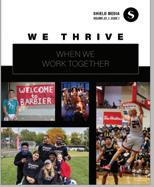
Terry Vanover welcomes students to the re-opened Barbier Hall.
Students perform in RU Theatre’s production of “Peter and the Star Catcher.”
James Fisher dunks in a men’s basketball game against crosstown foe Oakland University.
Over 130 members of the RU community helped the Micah 6 community in Pontiac during Warriors Serve on Oct. 12. Pictured are (top) Caleb Carroll, Nilla Kanjoma, Khalil Dent, and (bottom) Savanna Ryskamp, Yamelis Colon, Kei-Mon Williams and Gabriella Barczys.

:
Layla Cypher, a senior mass communication major, serves as Rochester University’s student body president, and she wants to make sure students’ opinions and voices are heard throughout the campus community.
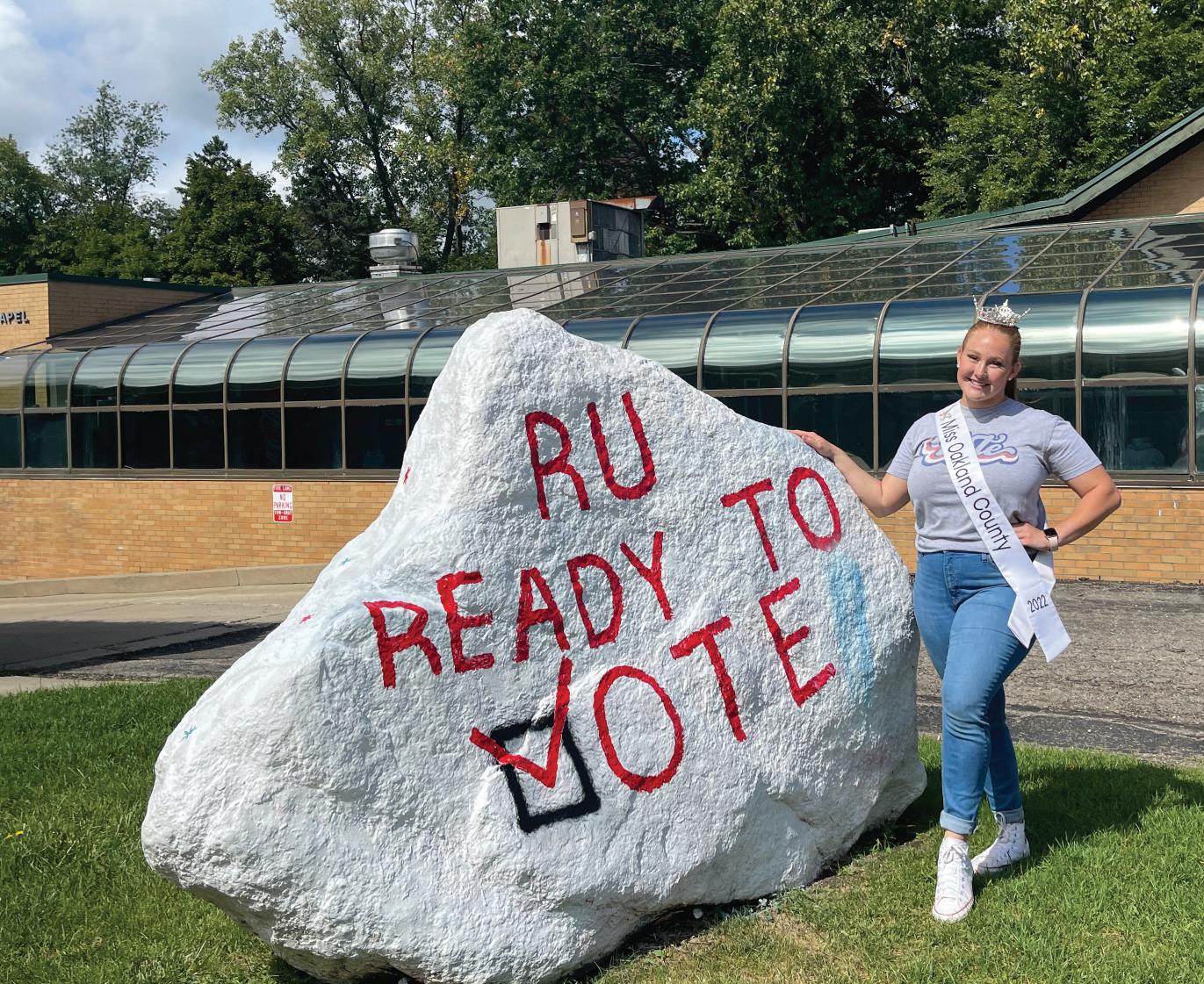
“To me, this means that I am serving the student body. Throughout the year, I want to make sure that everyone feels welcomed, heard and like they have a part in our community that we are building together,” she said.
Cypher was elected to the position at the end of the spring 2022 semester and has been making plans and enacting her goals ever since.
“One of my biggest priorities this year is increasing campus safety and security. Part of this was getting the blue light emergency phone on campus, and it has already been installed,” she said.
Cypher communicates regularly with Scott Samuels, vice president of admissions, marketing and student life and interim dean of students, to express student concerns, discuss plans, offer feedback, and accomplish goals they have planned for RU.
Cypher has attended RU since she was a sophomore in high school, as part of the Oxford Schools Early College program. She is involved in several organizations on campus, including serving as president of Omicron Omega Zeta and as a staff member of Shield Media.
“I like to connect with the student body by meeting everyone in person!” she said. “I love going to all of the events we host on campus to get to know everyone.”
HAYLEY MCQUADE Creative Director
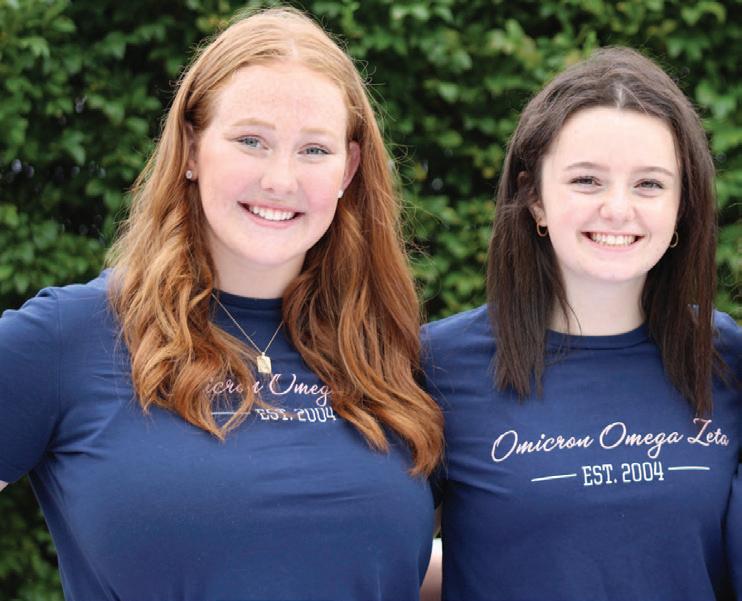
Cypher said she enjoys communication and found the right major when she chose mass communication. “It is a degree that I can apply to any career that I want to go into,” she said.
Outside of her campus involvements, Layla competes in beauty pageants, and this past summer, she won the Miss Oakland County pageant. She will go on to compete for the state title in June 2023. The Miss America Organization coordinates the pageants, and the competition includes an interview, on–stage question, talent event, evening gown presentation and social impact pitch.
In the social impact pitch, the women discuss their social impact initiatives. Cypher’s initiative is called, “Your vote is your voice,” which encourages young adults to register to vote and use their voice within their community.
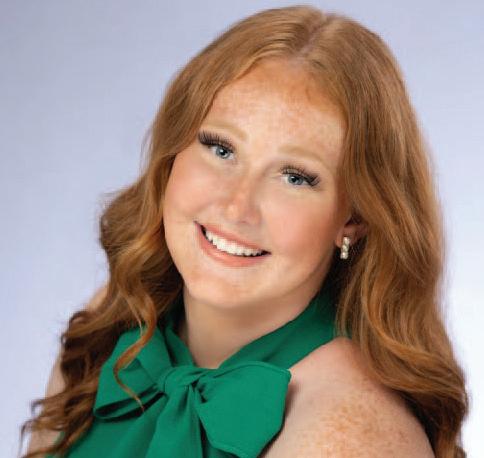
She said one of her best memories from participating in pageants was two years ago at Miss Michigan where she lived with 27 other women for a week. She said she formed great bonds and many deep friendships.
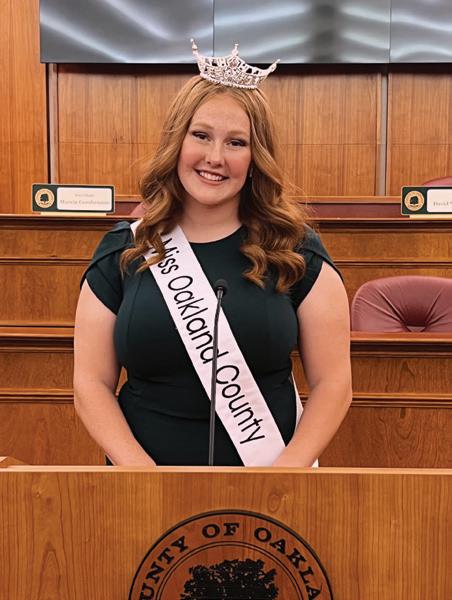
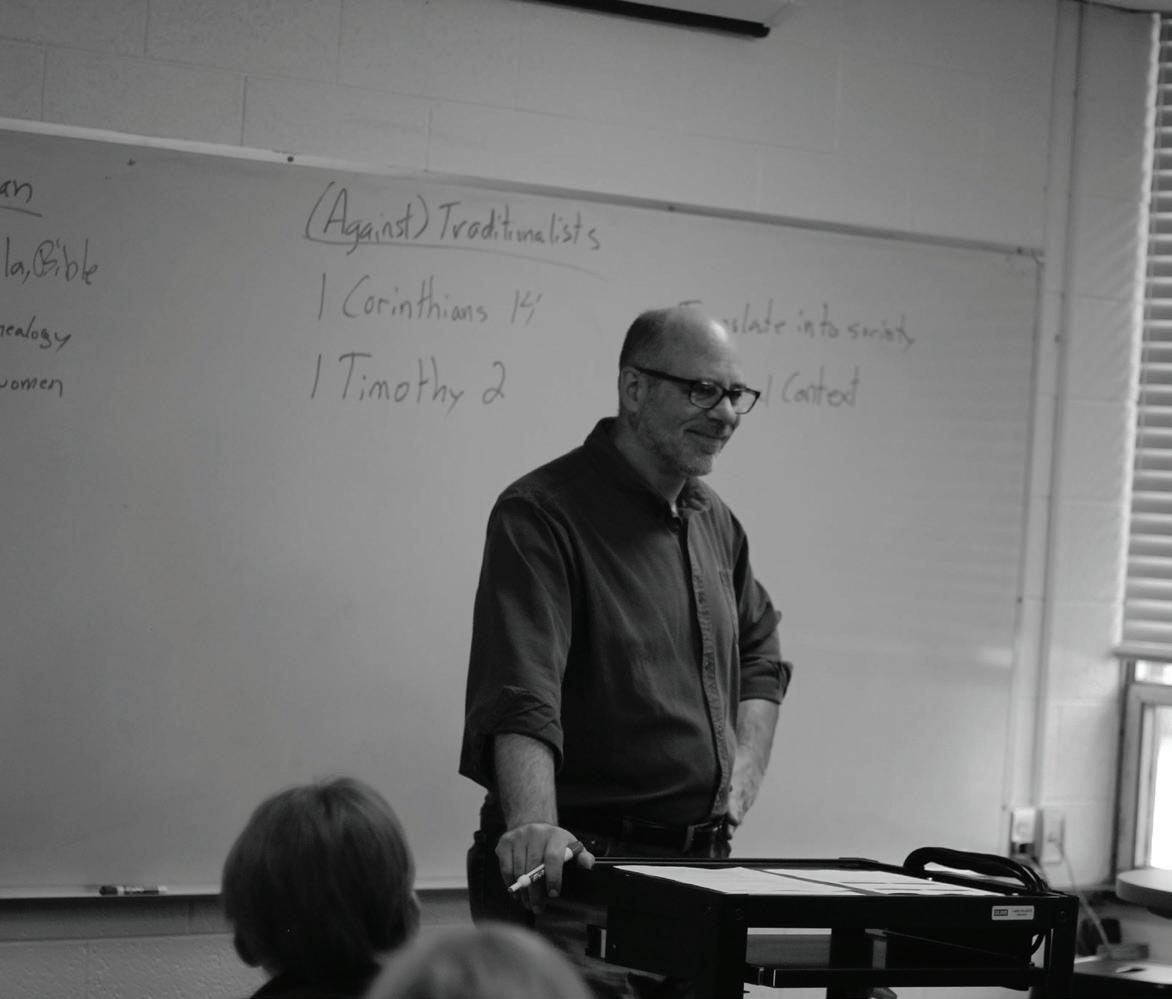
Imagine a class where students talk about:
• Charles Manson’s religious affinity toward the Beatles.
• Mormon brothers in Salt Lake City who claimed God told them to kill their sisterin-law.
• The idea that heaven is actually another planet in our solar system.
This fall, Rochester University introduced a new course for honors students that does just that.
The Bible in Society: Cults, Social Discourse and Pop Culture class taught by Dr. Greg Stevenson, professor of the New Testament, allows and encourages students to examine ways that the Bible is used for both good and evil within our society.
In a three-part analysis, this class covers a history of different cult’s biblical interpretations, political and social movements that use biblical principles, and how the media and creative arts are influenced by the Bible.
This course addresses the heavy topics in our society in which students can hesitate to engage, such as the pro-life/pro-choice debate, Republican vs. Democrat political affiliations, and the psychology of cult leaders and members.
Even though the course deals with sensitive subject matter, Stevenson said discussing and studying such issues is valuable.
“This class is a testimony to the need for biblical literacy,” Stevenson said. “It demonstrates how significant a role the Bible plays in our culture and the need to both recognize that and be able to evaluate it. Paying attention, in particular, to misuses and misinterpretations of the Bible makes us better interpreters by teaching us what to guard against.”
Stevenson said he created the class because he thought it would be “both fun and educational to explore the use of the Bible outside of mainstream religion, particularly with reference to misuses and abuses of the Bible.”
Students in the course believe that having a safe and open line of communication to discuss these type of topics helps them gain perspectives about how Christianity and society mix.
“In the first days of class, we debated if the Bible can be considered a dangerous book,” said Daniel Cordova, junior pre-pharmacy major. “While I was at first hesitant to make such a bold statement, the lectures truly opened my eyes to how people can twist the words of the Bible to make any choice, opinion or act seem like the ‘correct’ one.”
Jaiden Hornbuckle, a junior business management major, said when she registered for the class she was “hoping to learn how to discern false biblical teachings from truth.”
Stevenson said the process of equipping students to be aware and discerning through their Christian walks, is also important for the larger society.
“With the rise of evangelical influence in American politics, the Bible is playing a much bigger, though not always positive, role in public debate,” he said. “The overturning of Roe v. Wade has led to an explosion of theological discussions across our society with the Bible being pulled in as support for both sides of the issue. It’s also been fascinating (and a bit puzzling) to observe how what started out as simple medical advice during the pandemic (wearing masks, getting vaccinated) morphed into a theological debate.”
The Bible in Society: Cults, Social Discourse and Pop Culture class, while still in its infancy, is challenging students to remove the blinders they may have from their own Christian walks, and see the world in a deeper way.

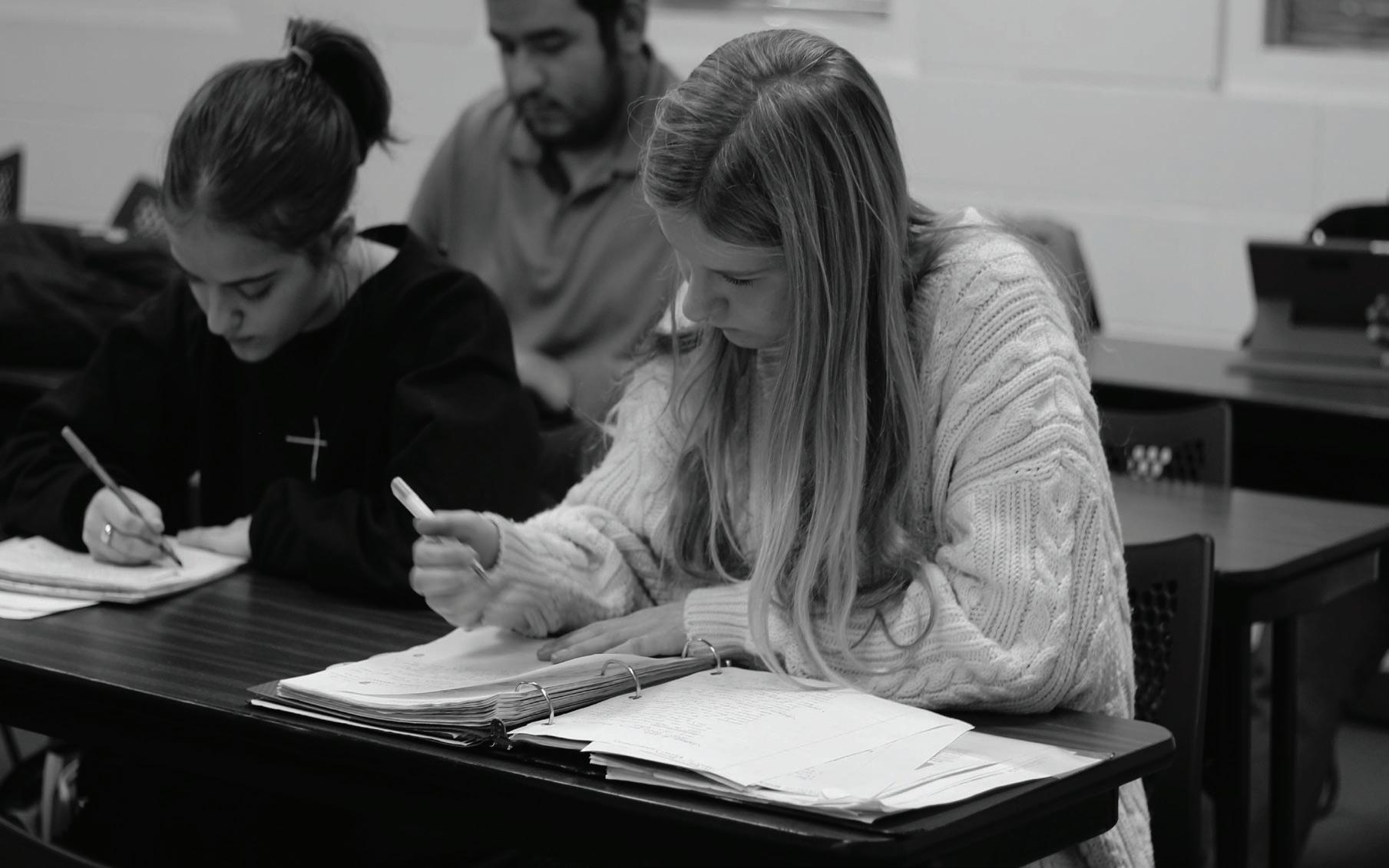
Stevenson said after the class is over, he wants his students to recognize “the vital role that the Bible plays in our culture and how important it is to train ourselves to be responsible interpreters of it because in irresponsible hands, the Bible can become just as dangerous as it is inspiring.”
SADDLER Assistant Content Director“This class is a testimony to the need for biblical literacy.”
Dr. Greg Stevenson
Dr. Tim Parker remembers the unique experiences he had while in college at Rochester University (then Rochester College) from being challenged academically to using old mattresses as sleds throughout the woods.
Parker, a Biblical Studies major who graduated in 2005, is the founding director of the Marriage and Family Therapy Program at Austin Center and an associate professor at Lipscomb University.
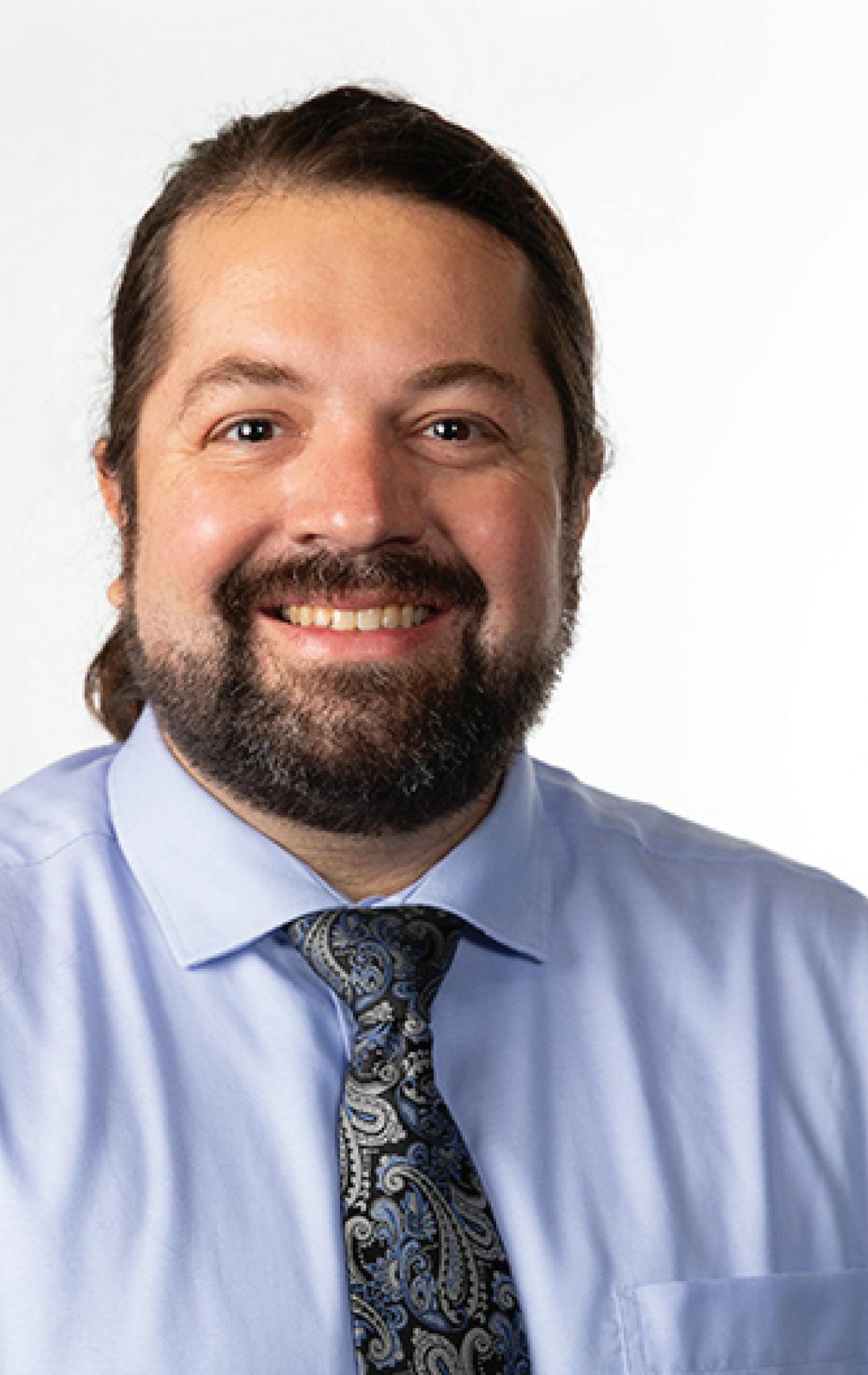
“I love my job,” Parker said. “My favorite thing is my interaction with students and helping train more
mental health professionals as we are experiencing a significant shortage throughout the country.”
Parker is also a therapist and supervisor for Fuller Life Family Therapy Institute in Belleville, Texas, and he serves as an adjunct for both Texas Tech University and Abilene Christian University. Before that, he worked for the U.S. Department of Veteran Affairs.
Parker attributes much of his professional success to his start at RU. “Academically I was challenged in ways that I believe prepared me for graduate school. One of the things that I appreciated about my education is that even though I was a Bible major, we were not taught doctrine. We were instead taught how to think critically about what we were learning. Learning that skill was invaluable.”
He also says his experience at Rochester prepared him in ways he never could have imagined. “I learned what it truly means to be a Christian, not just following a set of rules but bringing the kingdom of heaven to earth,” he said.
While a student, Parker was involved in social clubs, including TAU and he was in the first pledge class of Theta Chi. He served as president of Student Government, as a resident assistant, and as a member of the Acappella Chorus.
He remembered enjoying spending time in the woods behind campus. “We used to camp by the river, and in the winter, there was a pretty gnarly sledding hill. One winter we took some old mattresses that were being thrown out of the dorms and fastened ropes to them and used those to sled.”
Parker offers advice to students who want to thrive. “Don’t be afraid to put yourself in situations where you are not the smartest person in the room. Be willing to be challenged and to challenge yourself, especially when it comes to how you see the world and other’s experiences in it.”
 EMILY CARROLL Staff Writer
EMILY CARROLL Staff Writer

From selling custom Lake Norcentra T-shirts in college to now running his own business, Rochester University alumnus Ryan Koral embodies thriving.
Koral graduated from RU, then named Rochester College, with a bachelor’s degree in speech communication in 2002. While a student, Koral worked in RU’s enrollment office, and he continued in that job after graduation. He was in charge of promoting events for enrollment, and in 2004, a year before YouTube launched, he acquired a video camera and began creating promotional videos for the university and later for his church.
A photographer friend asked if he was interested in shooting a wedding video for a couple on short notice. Koral said, “I was like shoot, $500 bucks, that sounds awesome. I don’t know how to shoot a wedding, but I’ll figure it out. So I figured it out and had a blast.”
Koral said he fell in love with making videos, and in 2005, he started a small video production company, called Epic Motion, where his company created cinema-style digital films for weddings and events. For the next decade, Koral said he was on a “hardcore mission trying to create legacy pieces for families.”
In 2012, he expanded his brand and started Tell Studios, which focused on video projects for corporations and organizations. Tell Studios has three full-time employees and various contractors to create content for clients. Koral said Tell shares “stories that captivate, influence and sell their audience. We use the power of story to help our clients get noticed for the things that make them great.”
Reflecting on his time at Rochester, Koral remembers designing and selling “Lake Norcentra swim team” T-shirts. He said he and several of his friends once swam in the lake’s murky brown water to the small island in the middle of the lake.

Koral also said spending time with professors outside of class, whether being invited to their home for dinner or seeing them at other campus events,
was special. “I felt like they cared for my overall person and success, not just academics. I think that was really super valuable to be a part of a small school that could offer that. That’s pretty unique.”
Koral said he made some of his best friends at RU. They laughed, cried, prayed and lost friends — all of which they did together. “Yeah, it was pretty amazing.”

For two full years, learning, work, activities and athletics at Rochester University changed dramatically as the community dealt with the impacts of the global COVID-19 pandemic.
Classes were held online via Zoom or Google Meet. Social and athletic events and group gatherings were canceled. Campus was silent and vacant as the world around us came to a halt.
By fall 2020, RU instituted a return to campus, with strict restrictions: face masks were required, people took their temperatures and did daily health screenings, any chance of being infected led to individuals having to quarantine for 14 days. Employees cleaned every surface on campus several times a day and, of course, everyone stayed 6 feet apart. Many classes were held virtually, and no large gatherings were held, including chapel.
By fall 2021, students and employees started to trickle back to campus, but masks, health screenings and social distancing were still required to try to protect the campus community as much as possible while striving for some semblance of normalcy.
And by March 2022 as more and more people received their COVID vaccinations and the spread was slowing, the mask mandate was lifted and health screenings were no longer required. Isn’t it nice to see people’s faces again?
Dr. Brian Stogner, president of RU, said the campus got through the worst part of the pandemic pretty well, but “it was a horrible experience for everyone at one level or another. I’m grateful that we got through it in reasonably good health as a campus community. We invested a lot in trying to make sure that the campus environment was as safe and healthy as we could’ve made it.”
Now life seems to be normal, and students, faculty and staff have started this fall semester with an invigoration of life on campus.
In August, RU held its first in-person Academic Convocation ceremony since 2019. Students, staff and faculty gathered at the RU Alumni Center to celebrate being back together, to recite the Academic Covenant and start the year off strong as a community.
“Seeing the students gathered together is always a highlight for me, especially after the summer when so few students are on campus,” Stogner said. “Students are the lifeblood and reason for being at any university, and I am personally energized and motivated by being around them. Convocation is a great way to kick-start the year.”
Stogner said reciting the RU Academic Covenant together is one of his favorite moments of Convocation. He said he hopes that the Academic Convocation inspired students to feel a deeper commitment to academic work and establish a greater sense of community and belonging among the campus community.
This fall, about 650 traditional students started classes at RU, which is a record number, and several new programs are in the works.
Stogner said the administration is trying to create opportunities for people all the way from freshmen to graduating seniors. “We have the largest number of traditional students this semester that we’ve ever had and are very excited about a lot of things.”
The university is starting RISE, a mentoring program to help students build connections with alumni and friends of RU to provide the support and resources that students need to be successful.
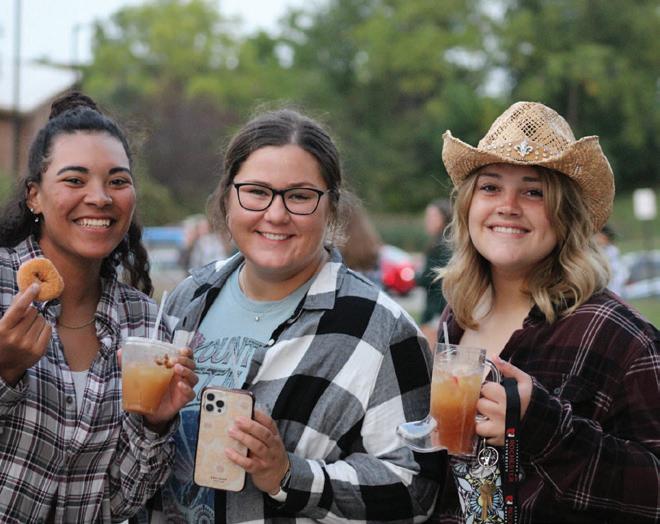
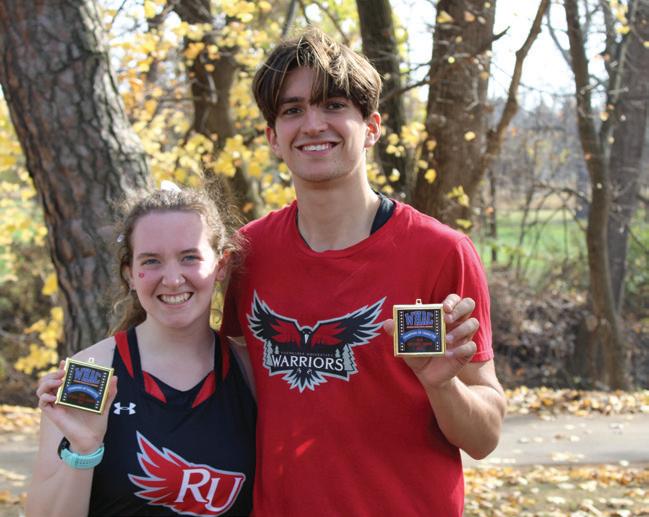
The college has added new majors and is working toward the development of two new master’s degrees, one in psychology and one in sport leadership. These will be added to the one master’s degree that RU already offers in missional leadership. The university has completed the Higher Learning Commission visit for these programs and a recommendation has been made. Stogner said he is anticipating approval of the programs by the end of the year, and then publicizing and recruitment for the inaugural classes will begin.
“We are really hoping that by informing students here at RU, some of our students will want to pursue graduate work here,” Stogner said.
As a smaller university, these new programs and an increase in student enrollment show just how much RU is truly thriving after the pandemic.
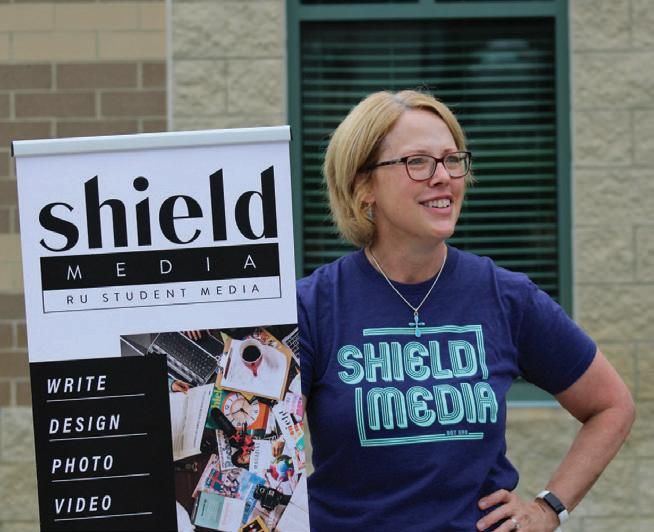
Small but big time
Stogner said the marketplace is difficult for small universities as population numbers of high school seniors decrease and paths after high school are changing, but RU has tried to take advantage of the positive aspects of being small.
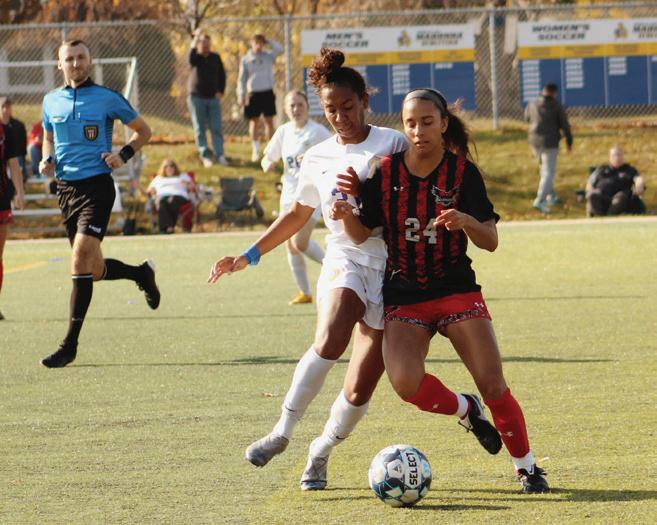
“We can be more personal. We can make up for what we lack in breadth to make up for in the depth of our connections with people,” he said. “We’ve added a lot of new athletic programs which provide opportunities for student athletes to come and be a part of our community that’s helped us to sustain and grow our numbers.”
The increase in RU’s student body brings more hustle and bustle back to campus. During online classes and isolation, the campus was often empty and rarely filled with students.
“I am thoroughly enjoying the campus atmosphere. There is life on campus and we have a larger number of residential students than we have had in many, many years,” he said. “We can find ways to help students get more out of their education, to get more out of the opportunities that exist outside of the classroom.”
Photo by: Hanna SwansonStogner said he wants to open RU’s doors to students who may not have truly received or experienced the true love of Jesus and dig deep into the institution’s identity of what it means to be a Christian institution.
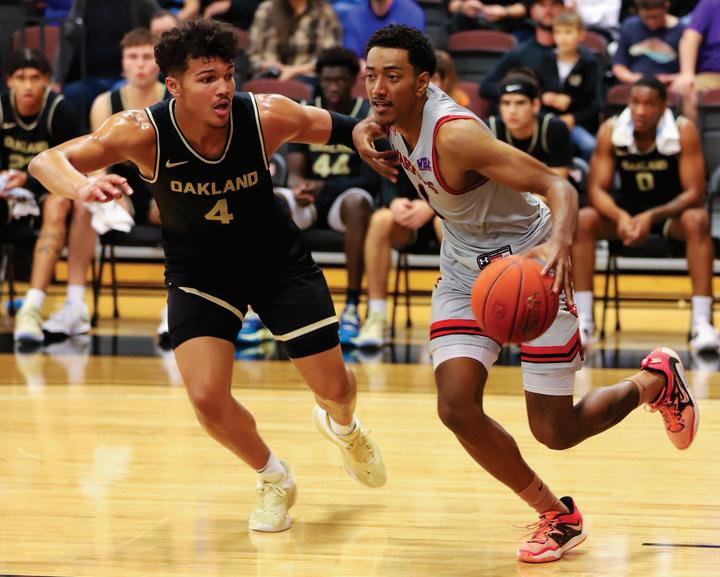
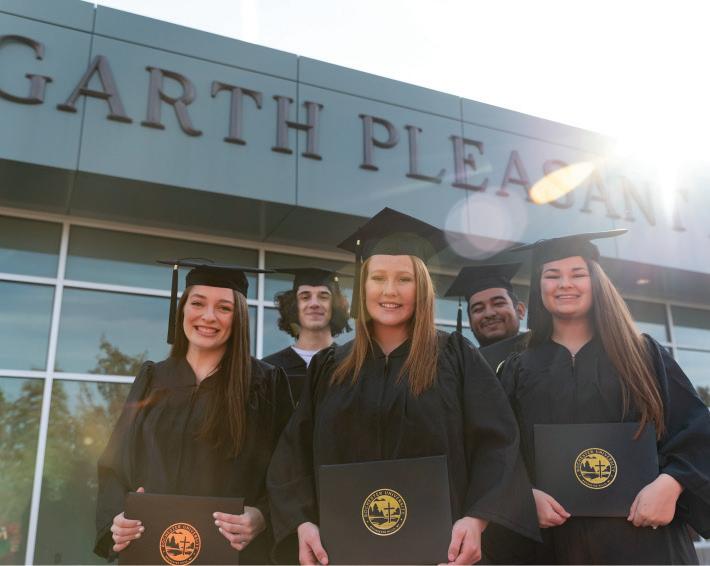
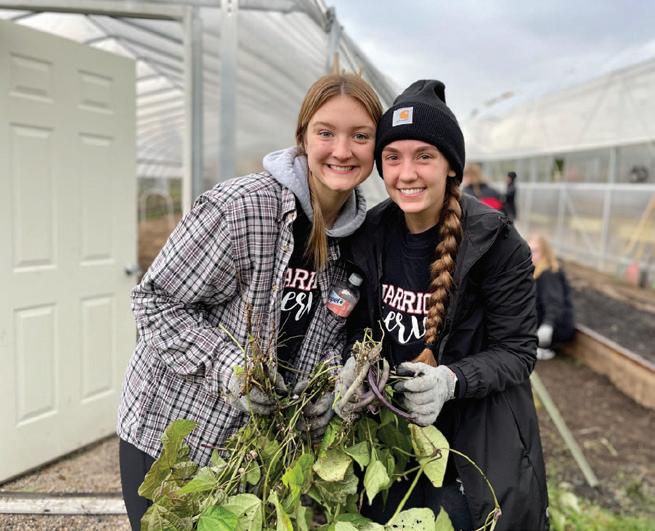
“It’s been heavy on my mind how we can really further our identity as a Christian university,” he said. “For me, it’s not only about the campus chapel services or that we study theology; those are important things, but those are not the defining characteristics of a Christian university. What defines us is the values that we hold and the mission that we take on. A big piece of that is to be a welcoming and hospitable place for people who come from the margins, or people who may not have experienced the radical hospitality of Jesus.”
Stogner and the university community want others to know that everyone can be accepted and welcomed onto the RU campus.
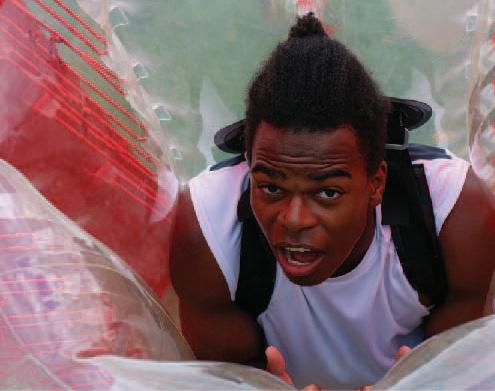
“We will be welcoming and inclusive of all believers and unbelievers, all races and ethnicities, all political persuasions, all socioeconomic statuses, all orientations, and citizens of every nation,” Stogner said. “As we create and foster that inclusive and welcoming environment, we will strive to keep in front of us the reminder that it is because Jesus is Lord, that we emulate his model of hospitality, welcome and inclusion.”
As the 2022 school year continues, students, staff and faculty will help RU to thrive and to be an accepting, exciting community for all.
Stogner said, “I hope that students know how to get plugged in and how to reach key people on campus for the things that they need to be successful. Maybe it’s faculty or people at the Center for Student Life. One of our new elements in Student Life is the new well-being office. Everybody is here to provide this type of support for students. It is why we get up in the morning and come to work. I want students to know that they are our priority!”
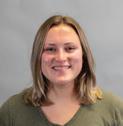 OLIVIA KING Content Director: Online
OLIVIA KING Content Director: Online
Greek Life at Rochester University over the years has veered from a robust set of social clubs that formed the center of student life on campus to almost non-existence with few group activities especially through the COVID-19 pandemic years.
Now, Greek Life at RU is on the road to recovery after the lean pandemic years and is a way for students to get involved with on-campus events, whether they’re commuters or living on campus.
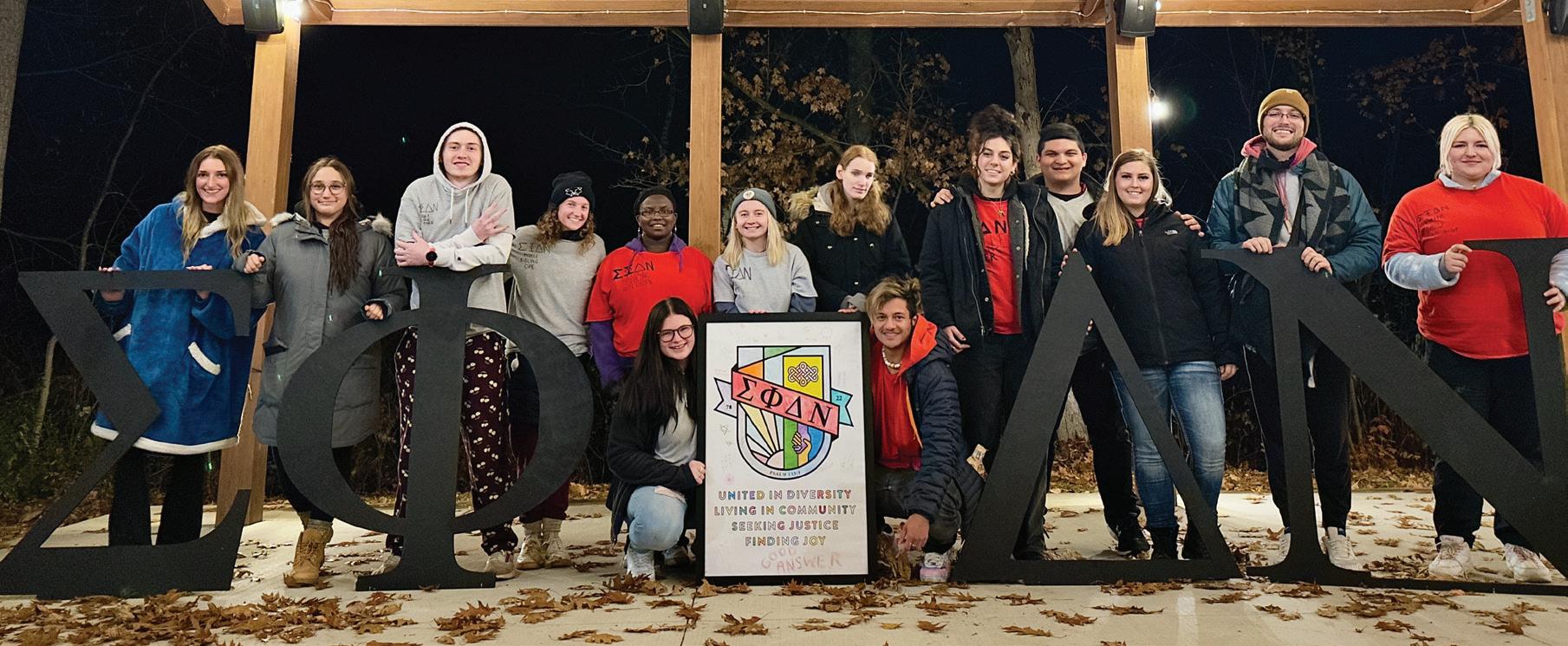
Most universities across the country have at least one fraternity and one sorority on their campuses, and those are usually national chapters with a board of officers.
Unlike those other universities, RU’s three chapters are local and unique to its campus. Students can join the male fraternity Epsilon Theta Chi, female sorority Omicron Omega Zeta, or the allgender club Sigma Phi Delta Nu.
During the pandemic, Omicron and Theta Chi found themselves struggling to plan events for their clubs because of restrictions that hindered the building of community and culture. Due to the lack of events, many students were unaware of Greek Life on campus. Participation and membership in both clubs decreased.
Sigma Phi Delta Nu had disbanded several years before the pandemic even hit, but in 2021, Dr. Naomi Walters, professor and chair, Department of Theology and Ministry, and Katelyn Hargrave,
spiritual life coordinator, who were members of Sigma Phi when they were students, were determined to start it back up.
“My time as a member (and an officer) of SPDN was formative to me, as an opportunity to practice leadership skills within the club, to practice living in community with diverse folks inside the club, and to practice hospitality to all students on campus,” Walters said. “Because being in SPDN served all those important purposes for me as a student, it matters to me that this is the same kind of opportunity I make space for as a sponsor.”
Walters also believed that relaunching the allgender club would help more students be engaged in Greek Life. “I know many people who have found the ‘men-only’ and ‘women-only’ spaces available in Greek Life as meaningful, and that’s great! It seemed like there was also a need for a club for all genders, where folks could have a space to practice healthy inter-gender friendships too.”
Thus with the relaunching of Sigma Phi and life returning to normal on campus after the pandemic, Greek Life is rebounding and hoping to thrive in the coming years. Students looking for a sense of community and belonging can investigate the various clubs and decide which one is the best fit for them.
Brian Petty, residence hall director and student activities coordinator, encourages students to consider being a part of a social club because they
TAMERA ROBINSON & HAYLEY MCQUADE“provide opportunities to create core memories through fun activities, but also through service.”
Nate Lightstein, president of Theta Chi and senior psychology major, said Greek Life is important for a sense of belonging it gives to students. “Real relationships are created through Greek Life, and lasting impacts are made. Students don’t attend club events simply for the fun of it or for any status that may be a result of joining, rather, they do so to find community.”
Each club has officers that represent and run the clubs: president, vice president, secretary, treasurer, and a spiritual life coordinator to help the group build its faith. The clubs all work and serve with nonprofit justice partners throughout the year.
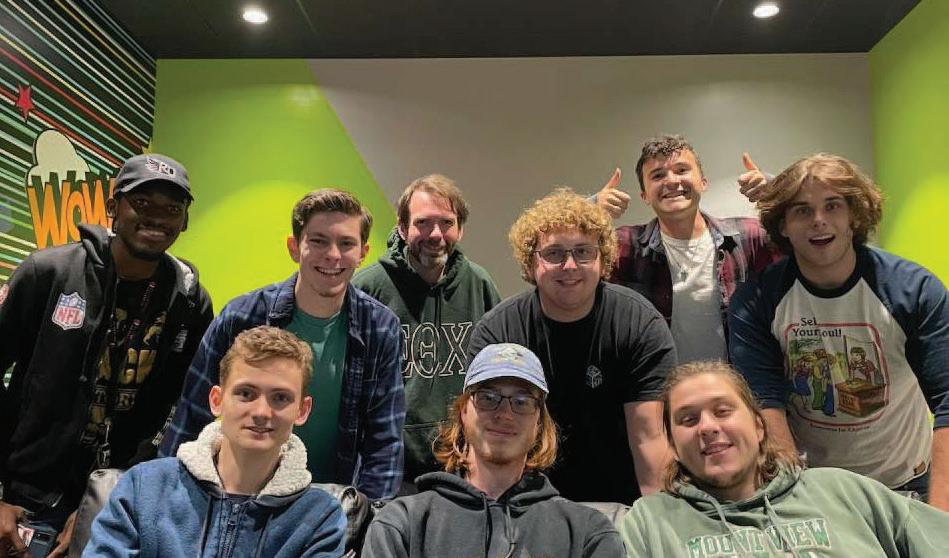
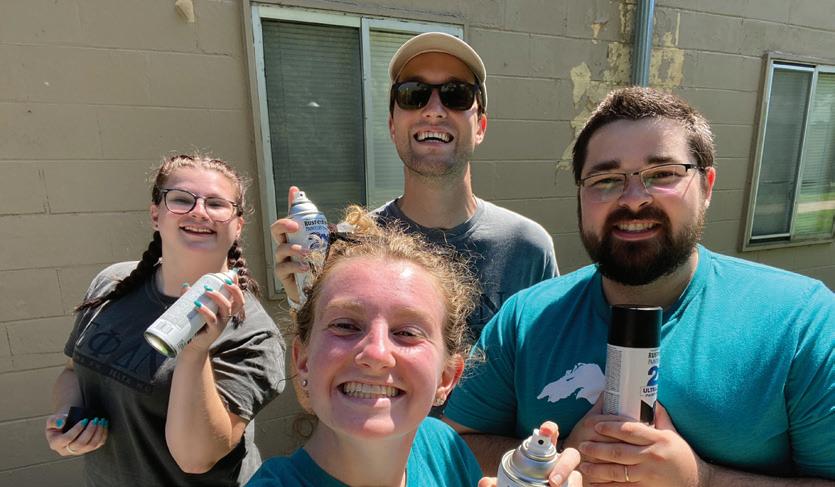
In past decades at the university, Greek Life was known for its club-versus-club competitions, including Intramurals and Celebration, an annual variety show. Intramurals were a series of competitions between each Greek Life club and other teams. Both were open to all of campus, which let anyone, even those not members of a club, participate in the activity.
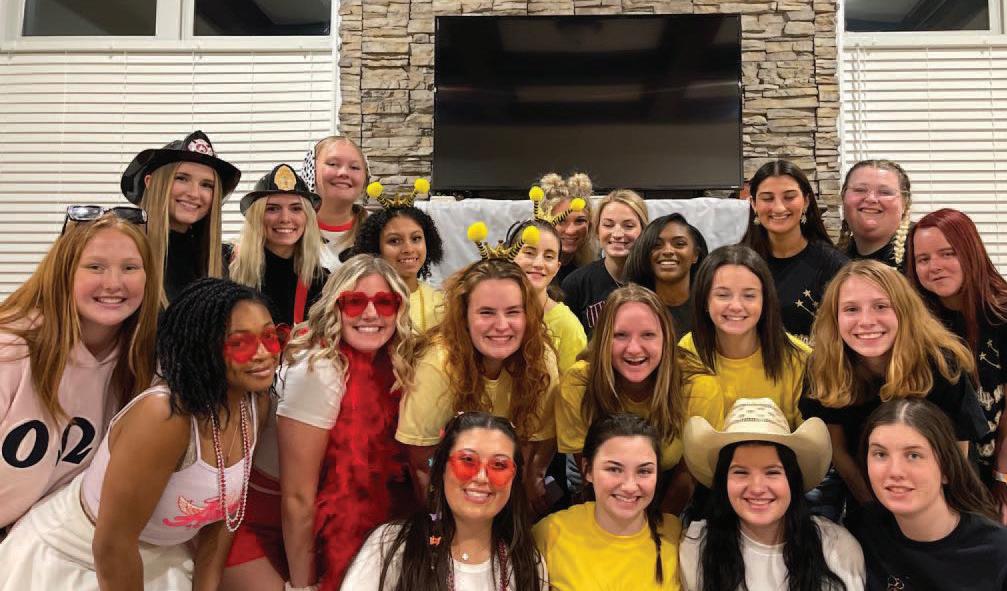
In 2022, Greek Life is rebuilding and doing better already with the overall participation, spirit and life on campus increasing.

Some hope to see past club competitions, such as Celebration and Intramurals, return, and they also envision new events that will be hosted by the three Greek organizations.
“The more things we can do to provide folks with the opportunity to participate and belong, the better,” Hargrave said.
Each club now seems to be thriving in comparison to years past. “We have created a very special bond with each other and all of our members are committed to creating a sisterhood,” said Layla Cypher, president of Omicron and senior mass communication major.
Israel Henson, sophomore behavioral science major, joined Sigma Phi in the spring and he said being involved with Greek Life has given him multiple opportunities as a commuter to make friends and come to campus for more activities.
Overall, Greek Life is continuing to grow with more events and more opportunities to work together and thrive in the RU community.

I came from a small town in South Carolina and bowling isn’t a recognized sport in high schools. I found a love for bowling through youth leagues and various tournaments. Those programs and tournaments couldn’t really prepare me for bowling in college and everything that I eventually would learn about the sport.
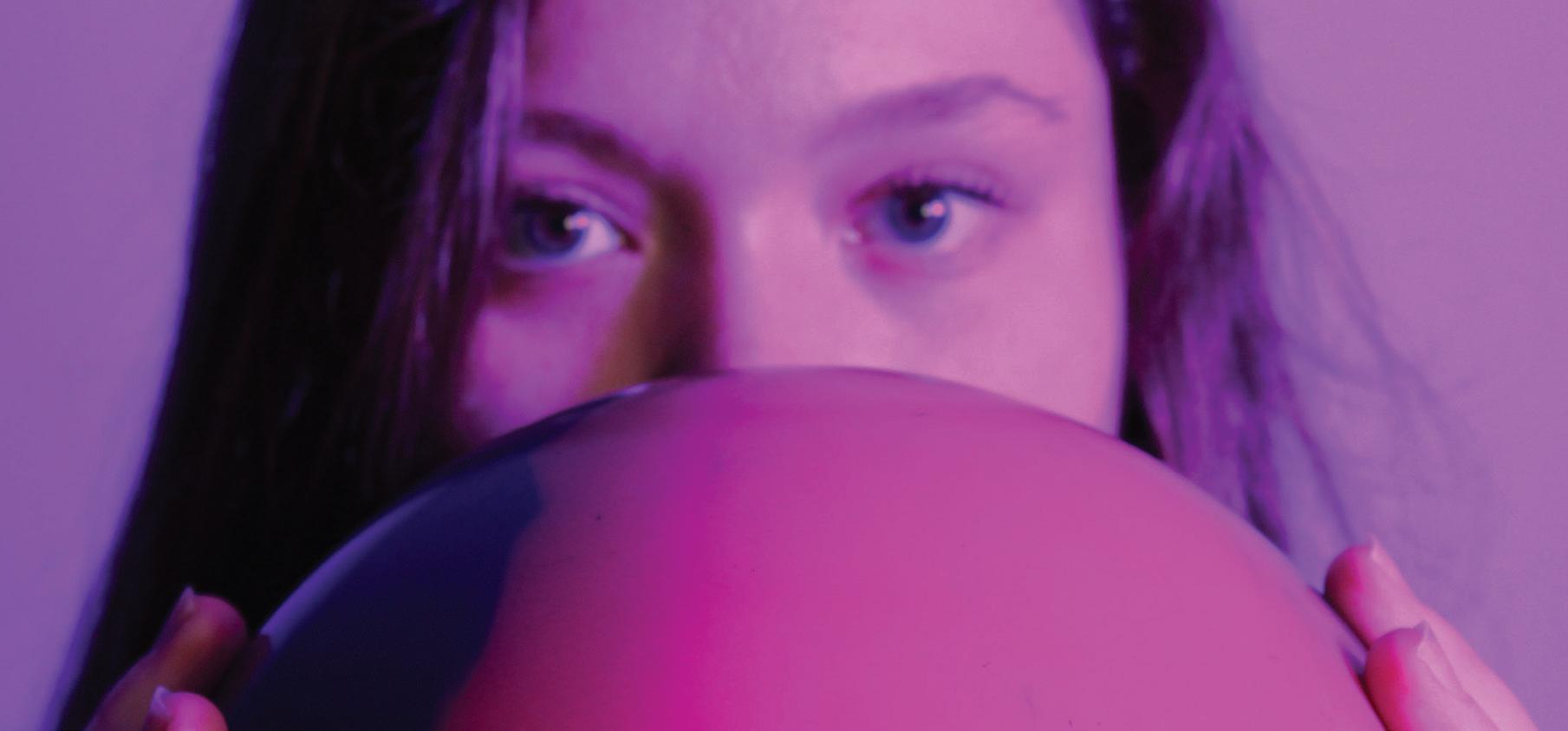
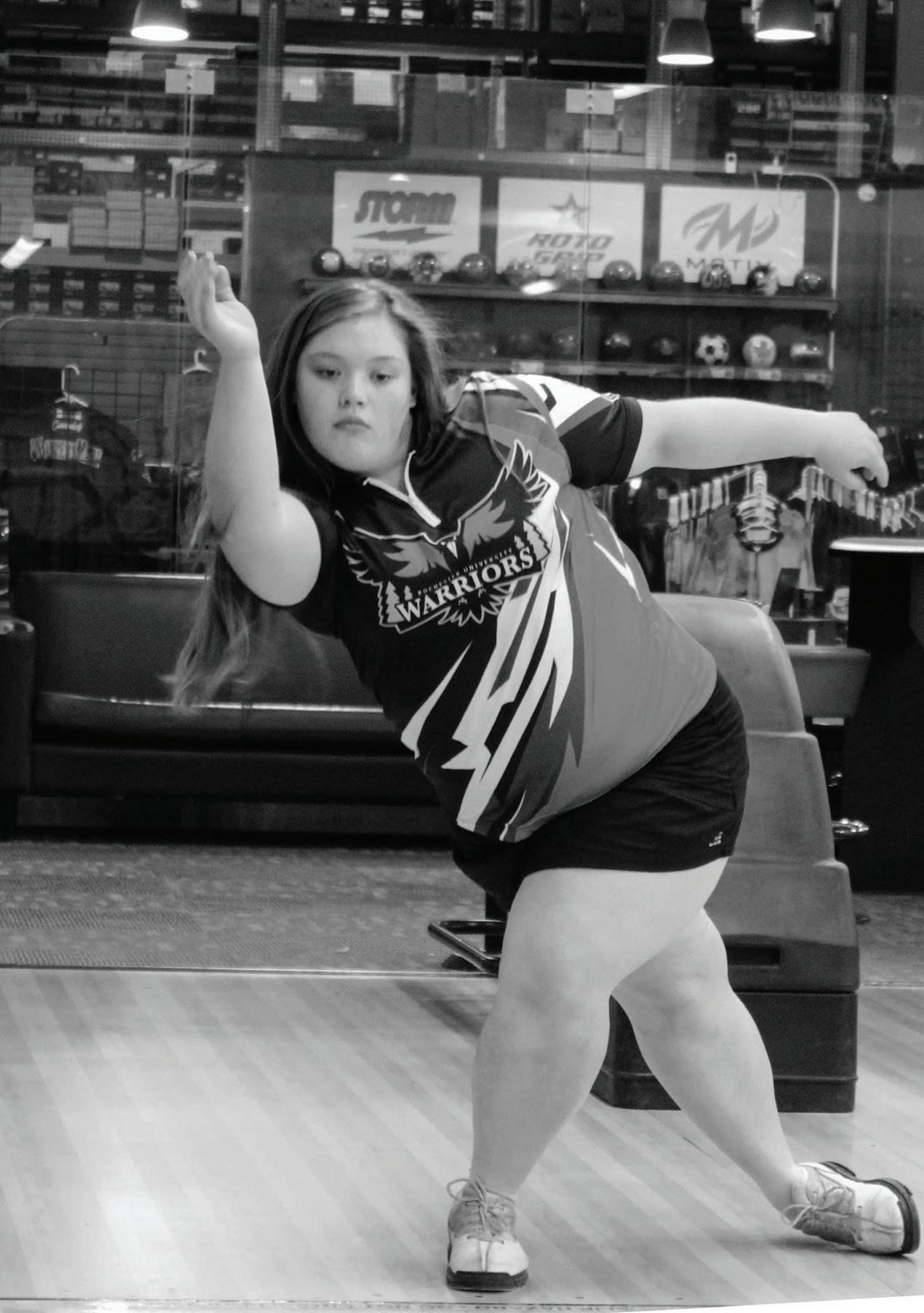
In the South, there aren’t many opportunities to bowl in college, and the Midwest is one of the only regions where there is an opportunity for bowlers to participate in a varsity-level collegiate sport in an athletic conference. I was recruited by RU and felt called to be here.
The transition coming from a small town and moving to a large metro area and to a different part of the country was difficult, but I had a lot of supporters by my side to help.
My support came from those around me everyday and my family from afar. These are the people I look to hold me up when I have feelings of doubt. My teammates, especially those who have been here with me since my freshman year, have helped me become the person I am today. My family at home has supported me every day from 12 hours away and willed me to do my best regardless of the outcome.
One of the difficulties I — and the bowling team — faced was when our former coach left the position. It was a trying time for all of us, filled with pain, self-doubt and confusion. But that situation and the outcome have led me to some of the happiest moments and best memories of my life.
Our new coach, Craig Woodman, has encouraged me to grow and flourish in a way that I did not think was possible! Since I’ve been on this campus for four years already, I have heard about what it should mean to be an RU warrior, and I’ve witnessed different examples of what that means.
For me, being an RU warrior is acting responsibly, being strong in the face of adversity, and understanding my personal and our team’s strengths and weaknesses.
I hope my fellow and future teammates will be able to stand on that foundation and continue to create a skilled, competitive and high-character bowling team. I know that we all will have future storms to face in our lives, but now that I’ve weathered some storms in my young existence, I know that living a life with persistence and integrity will help me see the sunshine.
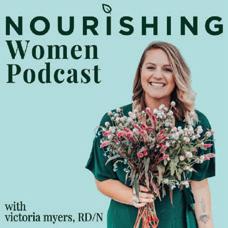
A registered dietitian, Myers provides useful tips on nutrition, fitness and healing our bodies as women.
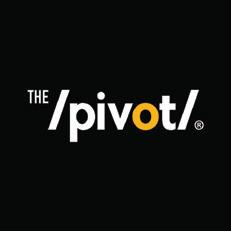
Channing Crowder, Fred Taylor and Ryan Clark
These former NFL stars have conversations with famous athletes about their lives and motivations.
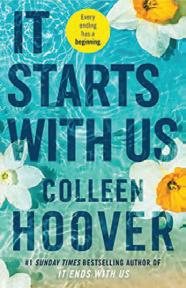
(2022)
Colleen Hoover
This sequel to the 2016 bestselling novel showcases “the author’s talent for creating nuanced and empathetic characters,” according to Publisher’s Weekly.
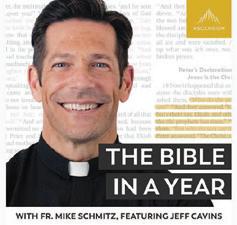
Father Mike Schmitz
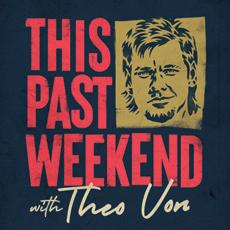
Father Schmitz walks through the entire Bible in 365 episodes, offering commentary, reflection and prayer.
Theo Von
Comedian Theo Von offers his take on the latest news and his unique but hilarious childhood, along with celebrity guests.
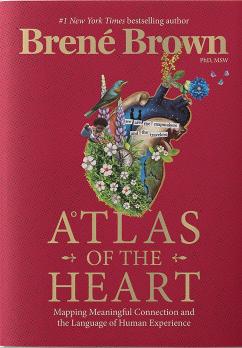

(2021)
Brene Brown
Brown explores 87 emotions and experiences that define humanness. She says, “This is for the mapmakers and travelers in all of us.”
FOE (2018)
Iain Reid
A psychological puzzle novel set in the future. Junior and Henrietta live on a farm away from the city when suddenly a stranger stops by with news.
AMERICAN HEARTBREAK (2022)
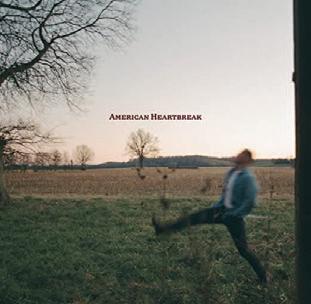
Zach Bryan Alternative Country
WATCH
BEAUTIFUL MIND (2022)
Rod Wave Hip Hop / Rap
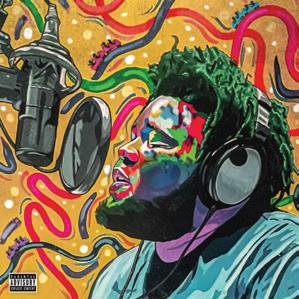
RED NOTICE (2021)

An FBI agent reluctantly teams up with a renowned art robber to catch a notorious robber.
Dwayne Johnson, Ryan Reynolds, Gal Gadot
HUSTLE (2022)
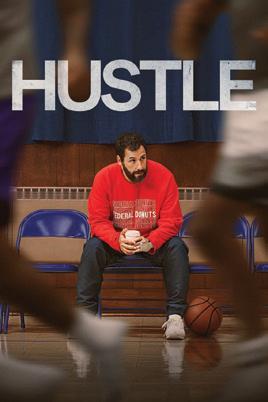

An NBA scout discovers a raw but talented player in Spain and tries to prepare him for the NBA draft.
Adam Sandler, Queen Latifah, Juancho Hernangomez

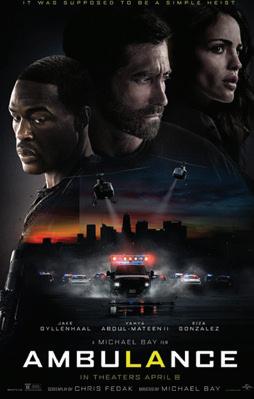
HARRY’S HOUSE (2022) Harry Styles Pop / R&B
KIERRA (2020) Kierra Sheard Gospel
AMBULANCE (2022) Action/Thriller
Two adoptive siblings turned bank robbers hijack an ambulance and take two first responders hostage.

Jake Gyllenhaal, Yahya AbdulMateen II, Eiza Gonzalez
ELVIS (2022)
The story of Elvis Presley’s life from start to end told from the perspective of his manager Colonel Tom Parker.
Austin Butler, Tom Hanks, Olivia DeJonge






